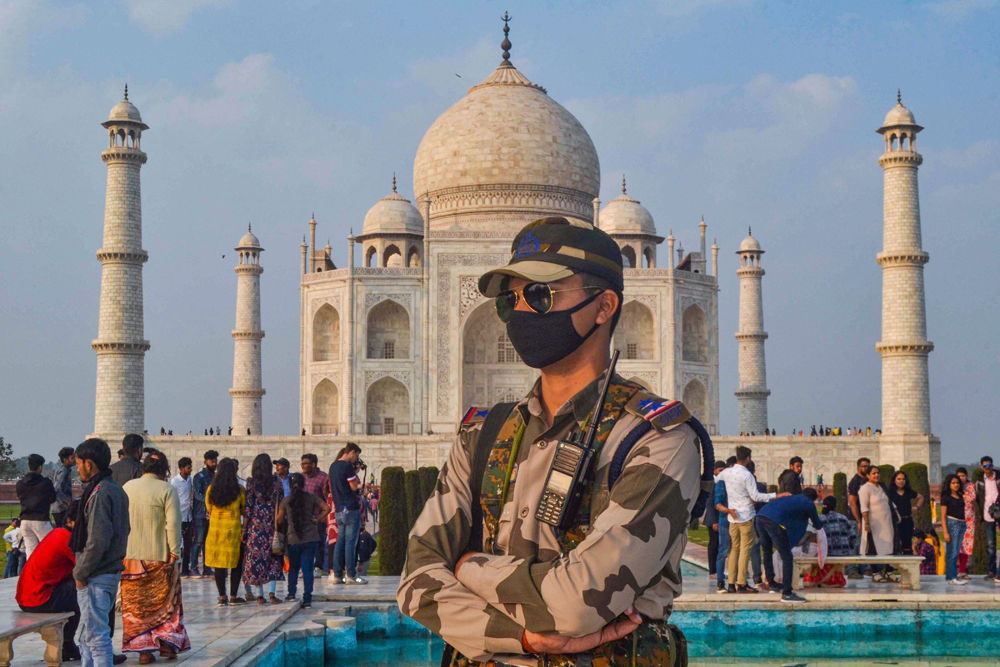India on Tuesday restricted any further entry of Chinese or China-resident foreigners into the country and said it was monitoring nearly 4,000 people in homes, quarantine centres and hospitals to guard against the novel coronavirus (nCoV).
The Indian embassy in Beijing said existing visas would no longer be valid but clarified that intending visitors with compelling reasons to travel to India should contact the embassy or India’s consulates in Guangzhou or Shanghai.
The Indian Council of Medical Research (ICMR), the agency coordinating nationwide testing for nCoV, said 534 samples had been tested up to Tuesday of which three — belonging to three patients in Kerala — have tested positive.
Among the 534 samples, 160 are from Indian nationals who returned from Wuhan on special Air India flights and are housed in quarantine centres at Manesar and west Delhi, the ICMR said.
But 3,935 other people who have returned from China in recent weeks are currently under “community surveillance” in 29 states and Union territories, the health ministry said.
These people have been asked to stay home for at least 14 days after their return from China, said a senior official with the National Disease Surveillance Control, New Delhi. District surveillance units across the country are monitoring them.
The 3,935 people under home quarantine are among over 89,500 passengers screened at airports across the country since India initiated airport screening more than two weeks ago. “We use certain criteria of suspicion to recommend quarantine for some people,” the official said.
The health ministry has repeatedly asserted over the past two weeks that all people who have a travel history from China should report to health authorities if they develop any symptoms of nCoV illness within 28 days after their return.
But some virologists are concerned that India is excessively relying on “self-reporting” and said they would have preferred to see a clear, stern recommendation asking all those who have returned from China to stay in their homes for at least 14 days.
“Fourteen days’ quarantine at home should have been no big deal — this would help health authorities with time and any emergence of the infection could be easier to deal with,” said a senior virologist who requested not to be named.
Infectious disease experts point out that Kerala is the only state that appears to have asked all who have returned to stay in their homes. A Kerala government release suggests that by Sunday it was tracking over 1,700 people in home quarantine.
“Kerala’s excellent health infrastructure and public outreach may have helped,” said a senior infectious disease specialist.
Home quarantine is intended to minimise the risk that the nCoV infection — if at all brought in and if at all transmitted to others — might spread to people in a locality outside their home.
“Mandatory 14-day quarantine for all those who returned from China would have been better than quarantine only for some people,” said Naga Suresh Veerapu, a virologist at the department of life sciences at the Shiv Nadar University, Gautam Budh Nagar.
The travel restrictions imposed by India on Chinese nationals have already impacted AutoExpo 2020, an international automobile show India will host from February 7 to 12.
“As all arrivals from China have not been stopped, there will be no visitor (or) delegations from China at the motor show,” Rajan Wadhera, the president of the Society of Indian Automobile Manufacturers, said in a statement on Tuesday.











